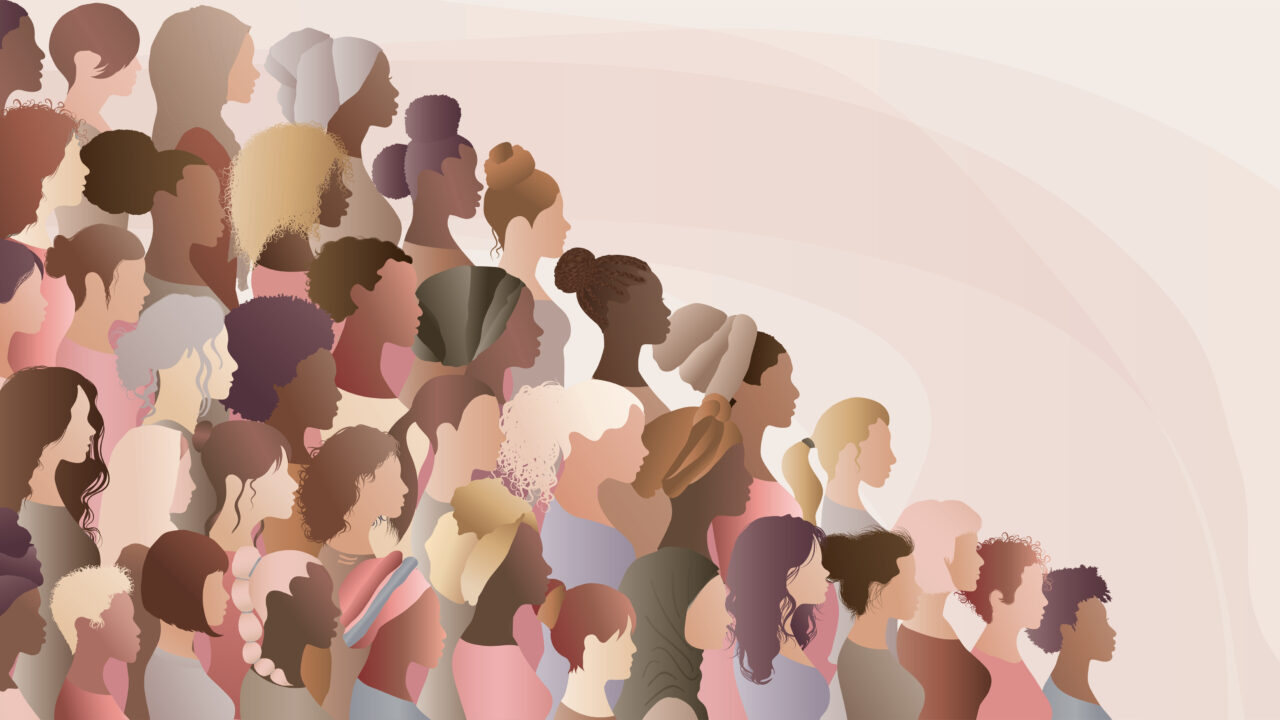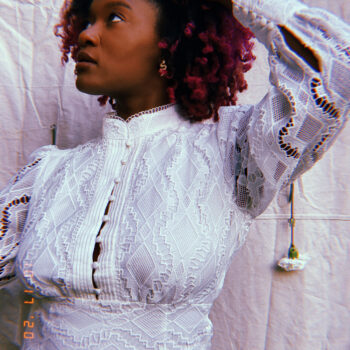Clarissa Brooks unpacks the phenomenon of solidarity being misunderstood and corrects the record on the origins of the purpose of global solidarity efforts for marginalized people.
This article is a part of Left Out: The Missing Election narratives, a collection of unreported histories by publications inside of the Movement Media Alliance.
In 2020, a media refrain stuck that Black women voters had saved democracy. With 9 in 10 showing up to elect Joe Biden, and Stacey Abrams’ Fair Fight voter registration initiatives driving many more votes his way, it was hard to ignore the unending labor that Black women throughout the country—and especially the South— had given to U.S. electoral politics. Black women’s thankless work in keeping alive the dying institution of the electorate is tied to a legacy of civil rights organizing and a centuries-long fight for full citizenship rooted in the Black church and its rejection of “faith without works.”
In 2024, 9 in 10 Black women voters showed up (again) for Kamala Harris. Now, faced with another Trump presidency, many Black women—overwhelmed with sentiments of grief, disbelief and pure betrayal—are declaring they are done for the next four years.
LaTosha Brown, co-founder of voter mobilization group Black Voters Matter, told the Associated Press, “America is going to have to save herself.” In the same article, Nicole Lewis, a therapist who specializes in Black women’s mental health treatment, was unapologetic about Black women withdrawing from social movements: “I also think it’s going to give other groups an opportunity to step up.”
I suspect this means no more boycott efforts for Palestine, no more advocacy for trans civil rights or for immigrant communities.
For Black women who believed a Harris win would have moved us closer to a world of racial and gender progress, the election felt like a more hopeful, just future was stolen away. There are moments when I can sit with and understand that despair; seeing this country for what it is can shake you into an intimate corner of darkness.
But I knew that future was never actually being offered. I recognize who would and wouldn’t have been granted safety under a Harris presidency. After all, Harris proudly supported the 2018 FOSTA/SESTA bill packages that foreclosed avenues of safety for sex workers, and much of her campaign trumpeted her record as California’s former “top cop.” It was clear that Palestine was the moral question of the campaign cycle, yet time and time again Harris held fast to her long record of asserting Israel’s right to defend itself, and she continued speaking about a cease-fire in the abstract, all platitudes and no action.
What concerns me most deeply about the TikToks, posts and podcasts from Black women opting out of solidarity efforts is how they also wax poetic in their identification with Harris, seeing in her loss their own experiences of misogynoir. In an article for Teen Vogue titled “It’s Time for Black Women to Be Selfish,” Niya Doyle writes mournfully that a Harris presidency “would have meant that Black women are worthy and qualified to hold the most powerful position in the world.”
These sentiments seem to reflect a deep lack felt by Black folks writ large, and specifically by classed cis Black women in the United States, that manifests in a supremacist idea of class mobility. It’s a dream of freedom that begins and ends at the desire to lead—not overthrow—a global empire that still regulates us as nonhuman through policing and mass incarceration.
When Moya Bailey coined the term “misogynoir” in 2008—detailing the specific and distinctive form of discrimination Black women face at the intersection of race and gender— she grounded it in examples of medical racism. The central core of her debut book, Misogynoir Transformed: Black Women’s Digital Resistance, was to make a record of the ways that cis Black women and trans, genderqueer and nonbinary Black folks have built alternatives to domination inside and out of institutions. Nowhere does Bailey celebrate attempts to climb to the top.
Bailey herself argued, in an interview in Design Observer, that the Harris campaign echoed the hollowness of an Obama era that served Black America the comfort of representation without fulfilling its promise for tangible justice around mass incarceration and police brutality. The Harris campaign served a savior role for many looking for those same comforts. That yearning for Obama-era comfort led many Black Americans to treat Harris’ militarism as a given, not worth questioning.
“If we’re not paying attention, we can get distracted by the vile and terrible misogynistic ways that Kamala has been represented in the press,” Bailey said, “and then not pay attention to what we’ve seen, which is initially a lack of conversation about policy at all.”
Black women vowing to withdraw their solidarity are calling for an end to their unrecognized labor, but they are also asking for political acknowledgement without an understanding of the global hierarchy of suffering. As people of the first world, we are the closest to empire and, as such, “we have no excuse letting [white men] take our piece-a money to carry out their fantasies,” Black feminist poet and activist June Jordan wrote in 1983 for Essence magazine. That summer Jordan traveled to Nicaragua, bearing witness to the Contra wars. Her legacy of solidarity with global struggles was not based on give and take; rather, she was guided by a deep love for a Black liberation that freed more than just herself.
The throughlines between racial capitalism and military oppression around the world are present if we care to look outside of ourselves. They are the very reason that Jordan went to Nicaragua in the 1980s—to understand how the United States fueled a reign of terror by a counterrevolutionary army for the sake of ongoing regional control. It disemboweled Central America’s political autonomy and emboldened racialized dehumanization everywhere else.
Today, the very police who are killing Black people on the daily are also flying to Israel to learn tactics of warfare used against Palestinians, through programs like the Georgia International Law Enforcement Exchange. We have a stake in solidarity with all oppressed people as a tool for our collective liberation.
Our fear, isolation, disillusionment and paranoia benefit supremacist regimes no matter the party. Getting clear on that makes it even more evident that, in a moment like the rebirth of a Trump presidency, we need deeper and substantive communal connections to establish reciprocal solidarity that strikes at the enemy head-on. While the act of solidarity or even multiracial organizing has never been easy or come without losses, we have the emotional tools, the language and the time to be involved in each other’s business in ways that don’t move us toward compliance with our own worst fears of individualism.
Those connections should be based not on who can turn out for us as readily as we turn out for them, but in our collective interest in enacting the world of care and autonomy we all deserve. As Sa’ed Atshan and Darnell L. Moore, both members of the first U.S. delegation of LGBTQ leaders to Palestine in 2012, write in their article “Reciprocal Solidarity: Where the Black and Palestinian Queer Struggles Meet”: “It is one thing to seek allies who will support the movements that move us, but it is yet another to figure out how we might become allies who are aware of and in support of the struggles that impact the very people we invite into our work. Ally-ship is not provincial and unidirectional.”
Similarly, Robin D.G. Kelley— scholar and author of Freedom Dreams—urges us to understand that “our support and solidarity with people who are struggling for human dignity and justice should not depend on their knowing anything about us! Solidarity is not a market exchange. It’s not, you need to give us your love and we’ll give you ours!”
These ideals of selflessness are difficult to embody as the reality of antiBlackness in America only becomes graver. I understand and empathize with how this ask of Black women, who feel politically misused, can move one to detach.
My deepest wish, as I see jokes about deportation come from the mouths of the descendants of African slaves, is that we remember white supremacy has never stopped at borders, bodies or race. My ambitions are that we find the courage to return to the work of communal freedom with our eyes on the right enemy.

